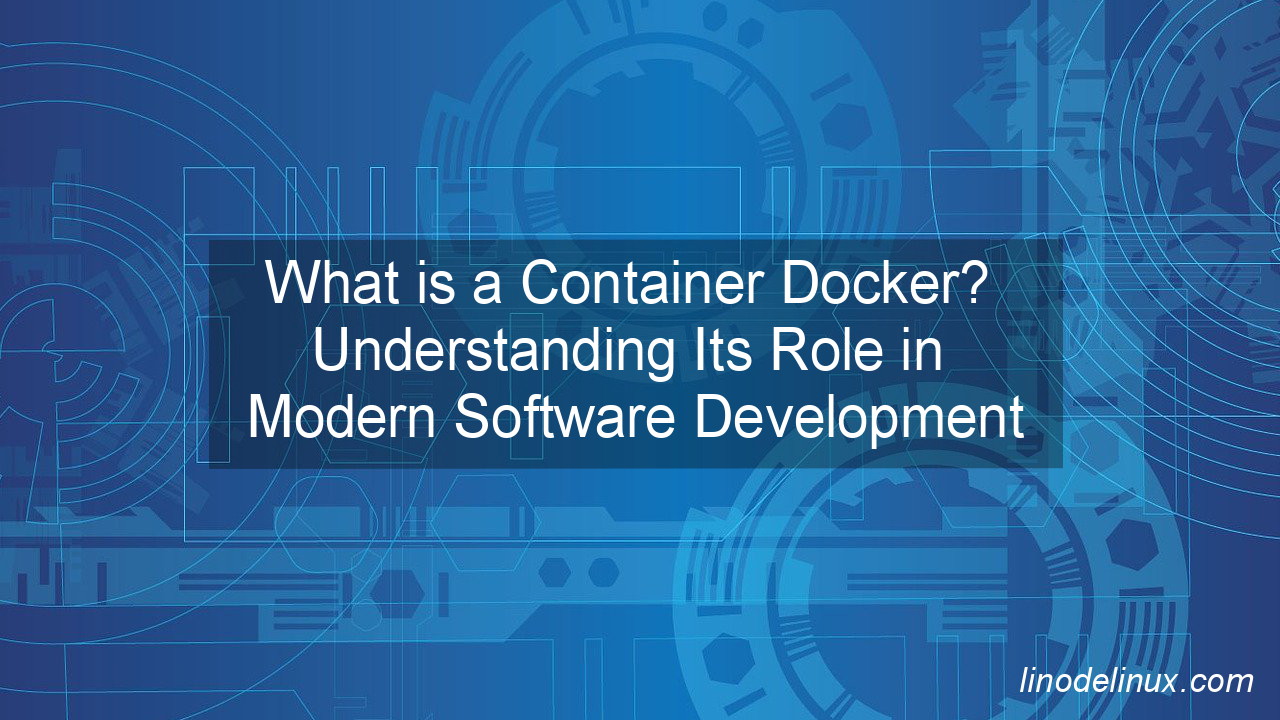Learn what a Docker container is, how it works, and why it’s essential for modern DevOps, cloud computing, and efficient software deployment.
In modern software development and IT operations, containerization has revolutionized the way applications are built, shipped, and deployed. Among the most popular containerization platforms, Docker stands out as a game-changer, enabling developers and system administrators to create lightweight, portable, and scalable applications.

Whether you’re a developer, a DevOps engineer, or an IT administrator, understanding Docker containers is crucial for streamlining software development, improving system scalability, and enhancing deployment efficiency. In this guide, we’ll explore what a Docker container is and why you should be leveraging it for modern application development.
What exactly is a Docker container, and why is it essential for DevOps and cloud-native environments?
Containers are a lightweight, executable package of software that includes everything needed to run an application.
A container is a runtime instance of an image. An image is the read-only template of a container. A container is created by reading the image and then running it in a virtual environment with the specified configuration.
A docker container is a standardized unit of software that packages code and all its dependencies, ensuring that applications run consistently across different environments. Unlike traditional virtual machines (VMs), containers are more efficient, require fewer resources, and provide faster deployment times.
What is Docker?
Docker is a containerization platform that allows developers to package their applications so they can be run in any environment.
Docker is a computer program that performs operating-system-level virtualization, also known as containerization. A docker container runs on top of an operating system, and includes everything it needs to run: code, runtime, system libraries, system tools etc.
A Docker container is a standardized unit of software that includes everything needed to run an application: code, runtime, system tools and libraries. The key difference between Docker containers and other virtualization technologies such as hypervisors or VM managers is that Docker containers don’t need their own kernel and can share the host kernel with other containers on the same machine. This means less overhead for each individual container and more efficient use of system resources than in traditional virtualization technologies such
What are the Benefits of Using a Docker Container?
A Docker container is a lightweight, standalone, executable package of software that includes everything needed to run an application. The “container” runs on a shared operating system kernel, which reduces the overhead of running multiple containers.
Docker containers are designed to be more efficient than virtual machines. This is because they do not require the entire operating system and libraries to be emulated. Instead, only the application and its dependencies are packaged in the container image.
Docker is an open-source project that provides an operating system-level virtualization to develop and deploy software applications. It is a technology that allows developers to create, deploy and run applications in containers. Containers are lightweight and they don’t require complex management.
Docker’s Role in the Development Process
Docker is a software containerization platform that allows developers to package an application with all of the parts it needs, such as libraries and other dependencies, and ship it all out as one package.
Docker is an open-source project that automates the deployment of applications inside software containers by providing an additional layer of abstraction and automation of operating-system-level virtualization on Linux.
The Docker container provides a standardized way to package and run any application as a lightweight, portable, self-sufficient container that will run virtually anywhere.
Conclusion
Docker containers have transformed the way applications are developed, deployed, and managed, making them a cornerstone of modern DevOps and cloud computing. By encapsulating applications and their dependencies into portable units, Docker ensures consistency, efficiency, and scalability across different environments—from local development machines to cloud-based infrastructures.
For developers, system administrators, and IT professionals, mastering Docker is essential for accelerating deployment processes, reducing operational overhead, and improving software reliability. Whether you’re working on microservices, cloud-native applications, or CI/CD pipelines, Docker containers provide the flexibility and efficiency needed for modern software development.
Now that you understand what a Docker container is and how it works, consider exploring Docker Compose, Kubernetes, and container orchestration to further optimize your DevOps workflows. If you found this guide helpful, share it with your peers and take the next step in mastering containerization!